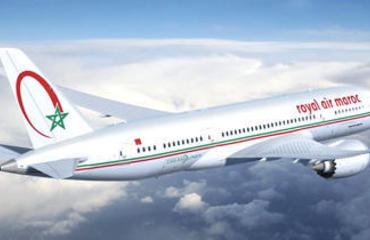São Paulo – In the next few weeks Moroccan airline Royal Air Maroc will start daily flights in the São Paulo-Casablanca route. The information was announced this Monday (17) by Morocco’s ambassador in Brasília, Nabil Adghoghi, during the panel Looking Ahead: Public Policies to Foster Deeper Integration, which ended the seminar Assessing and Redefining Policies towards Africa in a New Global Scenario: Intersecting Perspectives between Brazil and Morocco. Currently, the frequency is four flights per week.
“It took forty years for the route New York-Casablanca to introduce daily flights. In only three years, the route São Paulo-Casablanca will have, in the next few weeks, a daily flight,” said the ambassador in the event organized by the Centre for Studies in Integration and Development (CINDES), by Morocco’s OCP Policy Center, by the Brazilian Center for International Relations (CEBRI) and by the National Federation of Industry (CNI).
The daily flight will allow for a greater flow of passengers both ways and will foster opportunities in tourism, according to Rubens Hannun, the president of the Arab Brazilian Chamber of Commerce, who also took part in the panel. “With this, we will have more tourists both ways, which contributes to the promotion of information and knowledge between the two cultures,” he said.
This, according to Hannun, is an important point in fostering Brazil-Morocco relations in economics, culture, education and sports.
Adghoghi said all these aspects are covered in Morocco’s diplomatic strategy regarding Brazil. He recalled that diplomatic ties between the two countries will be 60 years old next year, and stressed that Brazil is one of the markets that the African country pays the most attention to.
According to the ambassador, the Arab Brazilian Chamber is being very helpful economically speaking. As cases in point, he mentioned the Brazilian delegation that travelled to the International Agriculture Show in Meknès, Morocco (Siam) last April and the assistance given to Moroccan executives who attended the São Paulo Supermarket Association Trade Show (Apas Show) a month later.
In parallel, both governments are working to advance agreements such as the Agreement on Cooperation and Facilitation of Investments (ACFI) – which, according to Adghoghi, has been completed and pending only signing – and the end of double taxation of air and sea transportation. The ambassador also revealed that the Moroccan foreign minister should travel to Brazil in October or November to fast-track these deals and resume talks for the Mercosur-Morocco trade agreement, another key point to stronger bilateral ties.
“There is no way Morocco will turn its back on the Mercosur. Talks are moving forward, we are looking into the consequences. The foreign minister’s trip should kickstart technical negotiations leading to this bilateral agreement,” Adghoghi explained.
Sports-related partnerships are also in the plans: “The Brazilian Football Confederation will enter into an agreement with the Moroccan Football Federation. Football is an important sport, we want to improve our connections,” the ambassador explained.
Another speaker in the panel, professor Eduardo Viola of the Institute of International Relations at the University of Brasília reiterated that the two countries stand to gain from increased integration in tourism. “Morocco is a safe, friendly country with plenty of natural beauty and a strong culture. It has a strong potential as a destination for Brazilian travelers,” he said.
According to him, the two countries should also work together in developing renewable energy sources such as solar power. Sunlight is abundant in both the Brazilian and the Moroccan territories.
*Translated by Sérgio Kakitani & Gabriel Pomerancblum




